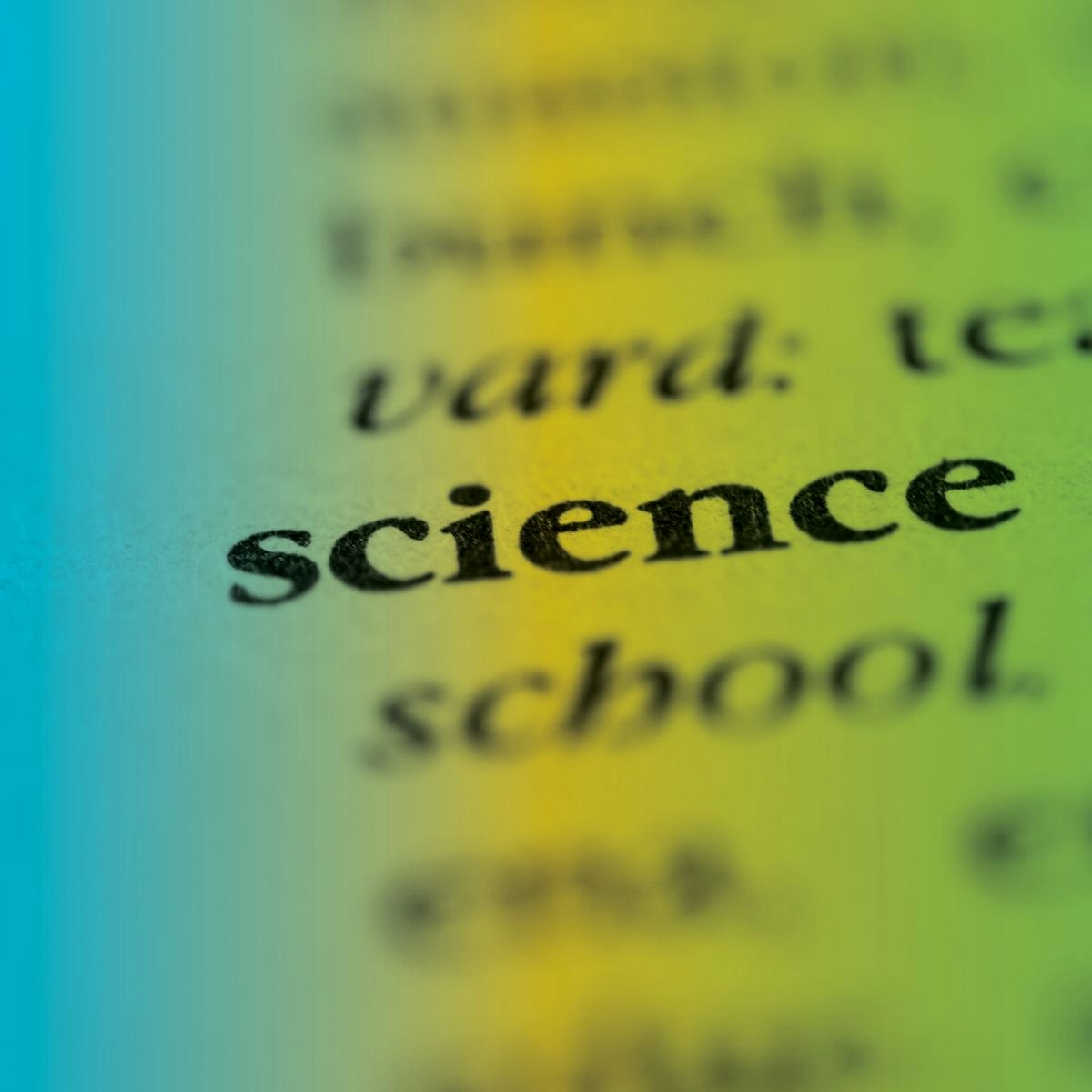Science Policy Advisor
Science Policy Advisor: Bridging Science and Governance
A Science Policy Advisor operates at the crucial intersection of scientific discovery and governmental action. They serve as translators and analysts, interpreting complex scientific research, data, and technological advancements for policymakers who may lack deep scientific backgrounds. Their work ensures that decisions regarding public health, environmental protection, national security, technological innovation, and resource allocation are informed by the best available scientific evidence.
Working in this field can be incredibly engaging. You might find yourself analyzing the potential impacts of emerging technologies like artificial intelligence, advising on strategies to combat climate change, or helping shape regulations for new medical treatments. It's a career that allows individuals with a passion for science to have a direct impact on society and public well-being by informing critical policy decisions.
Introduction to Science Policy Advisory
What is a Science Policy Advisor?
At its core, the role of a Science Policy Advisor involves bridging the gap between the scientific community and the world of policy and governance. These professionals take complex scientific findings, technological possibilities, and expert consensus and translate them into clear, actionable information that legislators, government officials, and other decision-makers can use.
Their primary function isn't just translation, but also analysis and synthesis. They evaluate the implications of scientific developments, assess potential policy options, and forecast the outcomes of different courses of action. This could involve anything from evaluating the effectiveness of a public health intervention to assessing the environmental impact of a new energy project.
The impact of their work is substantial. Effective science advice contributes to smarter regulations, more strategic allocation of research funding, improved public safety, and policies that foster innovation while mitigating risks. They help ensure that societal choices are grounded in evidence and rational analysis.
These books provide foundational perspectives on how scientific knowledge develops and is validated, which is crucial context for advising on its application in policy.
A Brief History and Evolution
The formal concept of science advising gained significant traction in the mid-20th century, particularly after World War II. Events like the Manhattan Project underscored the profound impact science could have on national security and global affairs, leading governments, especially in the United States, to establish mechanisms for systematic scientific input into policy.
Initially, the focus was heavily on defense, nuclear energy, and space exploration. However, as scientific understanding grew and new societal challenges emerged, the scope of science policy expanded dramatically. Environmental concerns in the 1960s and 70s, the biotechnology revolution, the rise of information technology, and pressing global health issues all necessitated broader and more diverse scientific expertise within government.
Today, the role continues to evolve rapidly. Advisors grapple with the policy dimensions of climate change, artificial intelligence, cybersecurity, pandemic preparedness, and sustainable development. The need for interdisciplinary perspectives and the ability to communicate science effectively to an often skeptical public are more critical than ever.
Understanding the historical context and philosophical underpinnings of science is beneficial for advisors navigating its complex relationship with policy.
Where Do Science Policy Advisors Work?
Science Policy Advisors are found across a variety of sectors where scientific and technical issues intersect with decision-making. Government agencies are major employers, including regulatory bodies (like the Environmental Protection Agency or Food and Drug Administration in the U.S.), research funding agencies (like the National Institutes of Health or National Science Foundation), and executive offices providing direct advice to leaders.
Legislative bodies also rely on science advisors, either as personal staff for elected officials or as non-partisan staff for committees focusing on science, technology, health, energy, or the environment. These advisors help draft legislation, prepare for hearings, and analyze proposed laws.
Beyond government, Non-Governmental Organizations (NGOs) and think tanks employ advisors to conduct research, advocate for specific policies, and educate the public. Industry associations and private corporations, particularly in regulated fields like pharmaceuticals, energy, and technology, hire advisors to navigate regulations, anticipate policy shifts, and inform corporate strategy. International organizations like the World Health Organization or the United Nations also require science policy expertise.
These resources delve into the practice and experience of science policy work.
Roles and Responsibilities of a Science Policy Advisor
Core Duties and Daily Tasks
The day-to-day work of a Science Policy Advisor is diverse. A significant portion often involves analyzing scientific literature, reports, and data to understand emerging trends, risks, and opportunities. They synthesize this information into concise formats suitable for policymakers, such as policy briefs, memos, talking points, or presentations.
Advising is a key function. This might involve direct briefings with elected officials or agency heads, participating in policy development meetings, or providing background information to support decision-making processes. They must be adept at explaining complex topics clearly and objectively, highlighting uncertainties and potential consequences of different actions.
Research and writing are constant activities. Advisors draft reports, contribute to legislative language, review proposed regulations, and prepare responses to inquiries. Staying current with both scientific advancements in their area of expertise and the relevant political and policy landscape is essential.
Specific scientific knowledge, such as understanding environmental hazards or disease evolution, is often required.
Engaging with Stakeholders
Science policy rarely happens in a vacuum. Advisors must effectively engage with a wide range of stakeholders. This includes interacting with scientists and researchers to gather expert input and understand the nuances of the science involved.
They also communicate with policymakers, ensuring they grasp the scientific basis for policy recommendations. Furthermore, advisors often need to consult with industry representatives, advocacy groups, community leaders, and the general public to understand different perspectives, build consensus, and ensure policies are practical and widely accepted.
Facilitating dialogue between these often-disparate groups is a critical skill. It requires not only strong communication abilities but also diplomacy, negotiation skills, and an understanding of the motivations and constraints of each stakeholder group. Building trust and maintaining relationships are paramount.
Ethical Considerations and Compliance
Science Policy Advisors frequently navigate complex ethical terrain. A core responsibility is upholding scientific integrity, ensuring that advice is based on the best available evidence, free from bias or political manipulation. This involves being transparent about uncertainties and potential conflicts of interest.
Advisors must be aware of and adhere to ethical guidelines and regulations governing research, data privacy, and conflicts of interest. They may play a role in developing or overseeing compliance with such standards within their organization or area of policy.
Ensuring that policies themselves are ethically sound and equitable is another dimension. This includes considering the potential impacts on different populations and promoting fairness in the distribution of scientific benefits and mitigation of risks. A deep dive into ethical challenges is covered in a later section.
Formal Education Pathways
Building the Foundation: Undergraduate Studies
There isn't one single "correct" undergraduate major for aspiring Science Policy Advisors. Many successful advisors come from strong STEM backgrounds (e.g., Biology, Chemistry, Physics, Engineering, Environmental Science), which provide deep technical understanding.
However, degrees in social sciences like Political Science, Public Policy, Economics, Sociology, or International Relations are also common pathways. These programs develop crucial skills in policy analysis, understanding governmental processes, and communication.
Regardless of the major, a strong foundation in analytical reasoning, critical thinking, research methods, and excellent written and oral communication skills is essential. Pursuing interdisciplinary coursework, minors, or research projects that bridge science and policy can be particularly valuable.
Introductory science courses can provide necessary foundational knowledge.
Advanced Studies: Graduate Programs
While not always mandatory, a graduate degree is highly beneficial and often expected for mid-to-senior level science policy roles. Specialized Master's programs in Science and Technology Policy (MSTP) or similar titles directly prepare students for this career.
Broader policy degrees like a Master of Public Policy (MPP) or Master of Public Administration (MPA) are also excellent options, especially if combined with undergraduate science training or relevant work experience. Other relevant degrees include the Master of Public Health (MPH) for health policy, or Master's degrees in Environmental Science/Management for environmental policy.
Some universities offer dual-degree programs (e.g., combining a law degree (JD) or a science PhD with a policy degree), providing both deep expertise and policy analysis skills. Choosing a program often depends on career goals and whether one seeks broader policy skills or specialization in a particular scientific domain.
Understanding educational theories can be relevant for those focusing on science education policy.
The Role of a PhD
A common question is whether a PhD is necessary to become a Science Policy Advisor. The answer is: it depends. A PhD provides deep subject matter expertise, research skills, and credibility, which can be highly advantageous, particularly in roles requiring specialized knowledge or within research-intensive organizations.
However, a PhD is not a strict requirement for many science policy positions, especially entry-level or those focused more on general policy analysis and communication. Many successful advisors hold Master's degrees. For PhD holders looking to transition from academia or research into policy, prestigious fellowship programs are a very common pathway.
Programs like the AAAS Science & Technology Policy Fellowships in the U.S. place scientists and engineers in executive, legislative, and judicial branch positions, providing invaluable hands-on policy experience. Similar programs exist in other countries and at state levels, serving as crucial bridges between science and policy careers.
Online and Independent Learning Strategies
Can You Learn Science Policy Online?
Online learning platforms offer valuable resources for building foundational knowledge in science policy. You can find courses covering the policy process, government structures, policy analysis techniques, and essential communication skills. For those with a science background seeking to understand policy, or policy professionals needing to grasp specific scientific areas, online courses can be an effective bridge.
However, science policy is also a practical field heavily reliant on experience, networking, and understanding institutional cultures. Online courses are best viewed as a supplement to, rather than a replacement for, formal education, internships, fellowships, and on-the-job experience. They are particularly useful for career pivots, allowing individuals to acquire new skills flexibly.
Platforms like OpenCourser aggregate courses from various providers, allowing learners to browse relevant categories like Public Policy and compare options. Utilizing features to save interesting courses can help build a personalized learning plan.
Essential Topics for Self-Study
If pursuing independent learning, focus on core areas central to the advisor role. Science communication is paramount – learning how to distill complex information accurately and clearly for diverse audiences. Understanding the policy lifecycle, including agenda setting, formulation, implementation, and evaluation, is crucial.
Familiarity with basic data analysis for policy and evaluation methods is beneficial. Knowledge of regulatory frameworks and how laws and regulations are created and enforced within your area of interest (e.g., environmental law, health regulations) is also key. Finally, understanding the structure and function of government at relevant levels (local, state, federal, international) provides essential context.
These online courses offer valuable insights into effectively communicating scientific concepts and understanding science itself, crucial skills for any aspiring Science Policy Advisor.
Applying Knowledge: Project-Based Learning
Passive learning alone is insufficient. Actively applying knowledge through projects solidifies understanding and builds a portfolio. Consider drafting a mock policy brief on a current science-related issue, identifying a problem, researching scientific evidence, analyzing policy options, and recommending a course of action.
Analyze an existing piece of legislation or a regulation related to science or technology. What was the scientific basis? Who were the key stakeholders? What were the intended and unintended consequences? Developing communication materials, like an infographic or a short presentation explaining a scientific topic to a non-expert audience, is also excellent practice.
Seek opportunities to volunteer with organizations involved in science policy advocacy or outreach. Participating in policy case competitions, workshops offered by professional societies, or contributing to blogs or publications focused on science policy can also provide practical experience and visibility.
Career Progression for Science Policy Advisors
Starting Out: Entry-Level Positions
Entry into the science policy field often begins with roles like Policy Analyst, Research Assistant, Legislative Aide, Program Assistant, or Junior Fellow. These positions typically involve supporting senior staff through research, data collection, drafting initial documents (memos, backgrounders), scheduling meetings, and summarizing information.
The focus at this stage is on learning the ropes: understanding the policy process within the specific institutional context, mastering research and analytical techniques, developing communication skills, and building a professional network. Internships during or after academic programs are highly valuable for securing these initial roles.
While demanding, these positions provide essential exposure to the realities of policy work and lay the groundwork for future advancement. Persistence and a willingness to learn are key.
Moving Up: Mid-Career Roles
With experience, advisors progress to roles like Senior Policy Advisor, Program Manager or Director, Legislative Director (for an elected official), or Committee Staff Director. These positions carry significantly more responsibility and autonomy.
Mid-career professionals often lead policy analysis projects, manage specific programs or initiatives, supervise junior staff, and engage directly in advising high-level decision-makers. They are expected to have deeper subject matter expertise and a nuanced understanding of the political landscape.
Stakeholder negotiation and strategic communication become more central to the role. Specialization often deepens, focusing on areas like energy policy, biotechnology regulation, public health strategy, or space policy. Networking and maintaining relationships across agencies, sectors, and stakeholder groups remain critical for effectiveness.
Reaching the Top: Leadership Opportunities
At the highest levels, Science Policy Advisors can attain significant leadership positions. This might include roles like Assistant Secretary or Under Secretary in a government department, agency director, Chief Science Advisor to a head of state or government, or executive leadership in NGOs, foundations, or prominent think tanks.
These roles involve setting strategic direction, making high-stakes decisions, representing the organization publicly, managing large teams and budgets, and engaging in complex negotiations. They require not only deep policy and scientific understanding but also exceptional leadership, management, and political skills.
Interestingly, a career in science policy can also serve as a launchpad into other fields. Experienced advisors may transition into leadership roles in academia, consulting firms specializing in policy, or executive positions within industries heavily influenced by science and technology policy.
Ethical Challenges in Science Policy Advisory
Science vs. Politics: Maintaining Integrity
One of the most persistent challenges is navigating the tension between objective scientific advice and political pressures. Policymakers may have pre-existing agendas or face constituent pressures that conflict with scientific evidence. Advisors must find ways to present findings honestly, including uncertainties and limitations, without compromising their scientific integrity.
This requires careful communication strategies, building trust with policymakers, and understanding the political context without becoming partisan advocates. Transparency about the scientific process and the basis for advice is crucial. Sometimes, the ethical choice involves clearly stating when evidence does not support a desired political outcome.
Maintaining neutrality and objectivity, while still ensuring advice is relevant and actionable within the policy process, is a delicate balancing act that defines much of the ethical landscape for advisors.
Understanding the philosophy and history of science can provide a framework for thinking about scientific objectivity and its limits.
Navigating Conflicts of Interest
Conflicts of interest, both real and perceived, can undermine the credibility of science advice. These can arise from various sources, such as funding for research (e.g., industry-sponsored studies), personal financial interests, institutional affiliations, or strong personal beliefs.
Advisors must be vigilant in identifying and managing potential conflicts. This often involves adhering to strict disclosure rules, recusing oneself from decisions where a conflict exists, and seeking advice from ethics officers or institutional review boards.
Transparency is key. Even the appearance of a conflict can damage trust. Establishing clear guidelines and fostering a culture of ethical awareness within institutions that employ science advisors is essential for maintaining public confidence in science-informed policy.
Global Dimensions and Equity
Science and technology often have global implications, and policies developed in one country can affect others. Advisors must consider the international dimensions of their work, including impacts on global health, environmental sustainability, and international scientific collaboration.
Furthermore, ethical considerations demand attention to equity. Advisors should analyze how policies might affect different socioeconomic groups, geographic regions, or vulnerable populations, both domestically and globally. This involves asking who benefits from a particular policy or technology, who bears the risks, and whether outcomes are distributed justly.
Addressing issues like access to medicines in developing countries, the impact of climate change on low-income nations, or bias in AI algorithms requires a commitment to global equity and social responsibility within the science policy framework.
Science Policy Advisor Skills and Competencies
Essential Technical Skills
A strong foundation in relevant scientific principles is fundamental. While advisors aren't typically conducting bench research, they need sufficient scientific literacy to understand research papers, communicate credibly with experts, and evaluate the quality of evidence.
Analytical skills are paramount. This includes the ability to critically evaluate scientific data, understand statistical methods, and apply policy analysis frameworks. Proficiency in both quantitative analysis (working with numbers and models) and qualitative analysis (interpreting non-numerical data, like stakeholder interviews) is often required.
A solid understanding of the policy-making process, including legislative procedures, regulatory development, and budget cycles, is necessary context for providing effective advice. Research skills – knowing how to find, synthesize, and assess information efficiently – are used daily.
Crucial Soft Skills
Technical skills alone are insufficient; soft skills are equally, if not more, critical. Exceptional communication skills—both written and oral—are non-negotiable. Advisors must convey complex information clearly, concisely, and persuasively to diverse audiences, from technical experts to busy policymakers and the general public.
Strong interpersonal skills are essential for building relationships, negotiating compromises, and managing stakeholders with conflicting interests. This includes diplomacy, tact, active listening, and the ability to work collaboratively in teams.
Critical thinking and problem-solving allow advisors to analyze situations from multiple angles, identify core issues, and develop creative solutions. Adaptability is also key, as policy landscapes and scientific understanding can change rapidly. Finally, a degree of political acumen – understanding institutional dynamics and navigating political sensitivities – is often necessary.
These courses and resources focus on the vital communication aspect of the role.
Helpful Tools and Technologies
Proficiency with standard office software suites (word processors, spreadsheets, presentation software) is expected. Depending on the role, familiarity with specialized software can be advantageous.
Experience with statistical software packages like R, Stata, or SPSS can be valuable for roles involving significant quantitative analysis. In certain fields, knowledge of specific modeling software (e.g., climate models, economic forecasting tools, epidemiological models) may be required.
Familiarity with legislative tracking databases (such as Congress.gov in the US or equivalent state/international systems) helps advisors stay informed about policy developments. Project management software and collaboration platforms are also commonly used.
Global Trends Impacting Science Policy Advisors
Sustainability and Climate Change
The urgent need to address climate change and promote sustainability is a major driver of demand for science policy expertise. Advisors are needed to interpret climate science, evaluate mitigation and adaptation strategies, develop renewable energy policies, and shape regulations for emissions reduction across all sectors.
International agreements, like the Paris Agreement, create complex policy landscapes requiring advisors skilled in environmental science, economics, and international relations. The growth of the "green economy" also creates opportunities, as highlighted by analysis from organizations like the Bureau of Labor Statistics on green jobs.
Expertise in areas like carbon capture, sustainable agriculture, water resource management, and circular economy principles will likely be increasingly valuable for advisors in the coming years.
Regulating Emerging Technologies
Rapid advances in fields like Artificial Intelligence (AI), genomics, synthetic biology, and nanotechnology present profound policy challenges. Science Policy Advisors play a critical role in helping societies harness the benefits of these technologies while mitigating potential risks.
This involves developing regulatory frameworks for AI ethics and safety, addressing privacy concerns related to genetic data, assessing the environmental impact of new materials, and ensuring equitable access to technological advancements. Advisors need to be forward-looking, anticipating future developments and their societal implications.
This requires not only technical understanding but also engagement with ethical, legal, and social issues (ELSI). The ability to facilitate public dialogue and translate complex technical debates into policy options is crucial.
International Science Diplomacy and Collaboration
Many critical scientific challenges, from pandemic preparedness to managing space debris or conserving biodiversity, transcend national borders. This increases the importance of science diplomacy – using scientific collaboration to build relationships and address shared global problems.
Science Policy Advisors may be involved in negotiating international research agreements, representing their country in international scientific organizations, or advising on policies related to the free exchange of scientific data and researchers. Geopolitical tensions can complicate these efforts, requiring advisors skilled in diplomacy and international relations.
Facilitating global scientific cooperation while protecting national interests and ensuring research security is a complex task that requires a unique blend of scientific understanding and diplomatic skill.
Frequently Asked Questions (FAQs)
Is a PhD required to become a Science Policy Advisor?
A PhD is often beneficial, particularly for roles requiring deep technical expertise or within academic/research settings, but it's not always a strict requirement. Many successful Science Policy Advisors hold Master's degrees, such as an MPP, MPA, MPH, or a specialized Master's in Science and Technology Policy.
Relevant work experience, internships, and fellowships can be just as important, if not more so, than the specific degree level. Strong analytical and communication skills, coupled with a demonstrated understanding of both science and policy, are key qualifications regardless of the terminal degree.
For those transitioning from a PhD, specialized policy fellowships (like the AAAS S&T Policy Fellowships) offer excellent pathways into the field.
How does this role differ from a lobbyist or advocacy worker?
While both roles operate at the science-policy interface, their primary functions differ. A Science Policy Advisor typically works *within* an organization (government agency, legislative office, think tank) to provide objective analysis and inform internal decision-making. Their goal is to present evidence-based options and their potential consequences.
A lobbyist or advocacy worker typically represents an *external* interest group (industry, non-profit, professional society) and aims to persuade policymakers to adopt a specific policy position favorable to that group. While they use scientific information, their primary goal is persuasion and influence, not necessarily objective analysis for the policymaker.
Overlap can exist, as advisors engage stakeholders and advocates use data, but the core purpose and accountability structures are distinct.
What industries hire Science Policy Advisors?
Science Policy Advisors work across multiple sectors. Government is a major employer at the federal, state, and local levels (executive agencies, legislative bodies). Non-profits, including advocacy groups, foundations, and think tanks focused on science, technology, health, or environment, hire many advisors.
Academia employs advisors in government relations offices or policy research centers. Industry, particularly in regulated sectors like pharmaceuticals, biotechnology, energy, chemicals, and technology, hires advisors for regulatory affairs, government relations, and strategic planning. International organizations and scientific societies also offer opportunities.
Can engineers or other STEM professionals transition into this career?
Absolutely. Transitioning from a technical STEM background (like engineering, physics, biology, computer science) into science policy is a very common and valued pathway. Your technical expertise provides a strong foundation for understanding complex scientific issues.
The key challenge is often acquiring the necessary policy analysis, communication, and political understanding skills. This can be achieved through formal education (Master's degree in policy), specialized fellowships, targeted online courses, internships, volunteering, and networking.
Making this transition takes effort, but your STEM background is an asset, not a hindrance. It requires learning a new "language" and set of processes, but many resources exist to help bridge that gap. Be encouraged that your analytical skills are highly transferable.
How competitive is the job market?
The job market for Science Policy Advisors is generally competitive, particularly for high-profile positions in federal government or prestigious fellowship programs. Success often requires a strong academic record, relevant experience (internships, volunteer work, prior research or policy roles), excellent communication skills, and effective networking.
Competition levels can vary depending on the specific sector, geographic location, and area of specialization. For instance, fields related to health policy, climate change, and emerging technologies currently see significant demand. Resources like the AAAS guide to navigating the job market offer valuable insights.
Persistence, tailoring applications, and building connections within the science policy community are important strategies for navigating the market.
What are the salary ranges?
Salaries for Science Policy Advisors vary significantly based on several factors: sector (government, non-profit, private industry), level of experience, educational background (Master's vs. PhD), geographic location (cost of living), and specific responsibilities.
In the US federal government, salaries typically follow the General Schedule (GS) pay scale, with entry-level positions often starting around GS-9 to GS-12, and progressing higher with experience. Non-profit salaries can vary widely but are often lower than government or private sector roles. Private industry positions, particularly in regulatory affairs or government relations for large companies, may offer the highest compensation.
General data for related roles like "Policy Analysts" can be found via resources like the BLS Occupational Employment Statistics, but specific data for "Science Policy Advisor" is harder to isolate. Researching salary ranges for specific organizations or using salary comparison websites can provide more tailored estimates.
Getting Started and Next Steps
Embarking on a career as a Science Policy Advisor is a rewarding path for those passionate about using scientific knowledge to improve society. It requires a unique blend of analytical rigor, communication finesse, and an understanding of political and institutional processes. If this field excites you, start by exploring relevant academic programs and gaining foundational knowledge.
Seek out practical experiences through internships, volunteering, or policy-focused projects within your current studies or work. Engage with the science policy community by attending workshops, joining professional societies (like AAAS or discipline-specific groups with policy arms), and conducting informational interviews with people working in the field.
Continuously build your skills, particularly in communication and policy analysis. Leverage online learning resources; platforms like OpenCourser allow you to browse courses across disciplines and use features like Save to List to curate your own learning path. Don't be afraid to reach out and build your network – many professionals are willing to share insights with aspiring advisors.
The journey to becoming a Science Policy Advisor involves dedication and continuous learning, but the opportunity to contribute meaningfully at the interface of science and society makes it a compelling and impactful career choice. With preparation and persistence, you can position yourself to help shape a future informed by evidence and innovation.

















